Families For Life | Little bright minds: Before numbers and words, babies are already learning
Cover photo taken in collaboration with Matthias Chong and Ang Wei Ming
While literacy skills such as reading and writing aren’t usually taught until kindergarten, you can lay the foundation for your children’s literacy skills from a very young age, even from birth.
Before your child learns to read and write, they will need to develop the building blocks for literacy – the ability to speak, listen, understand, watch and draw.
As they grow older, they also need to learn about the connection between letters on a page and spoken sounds.
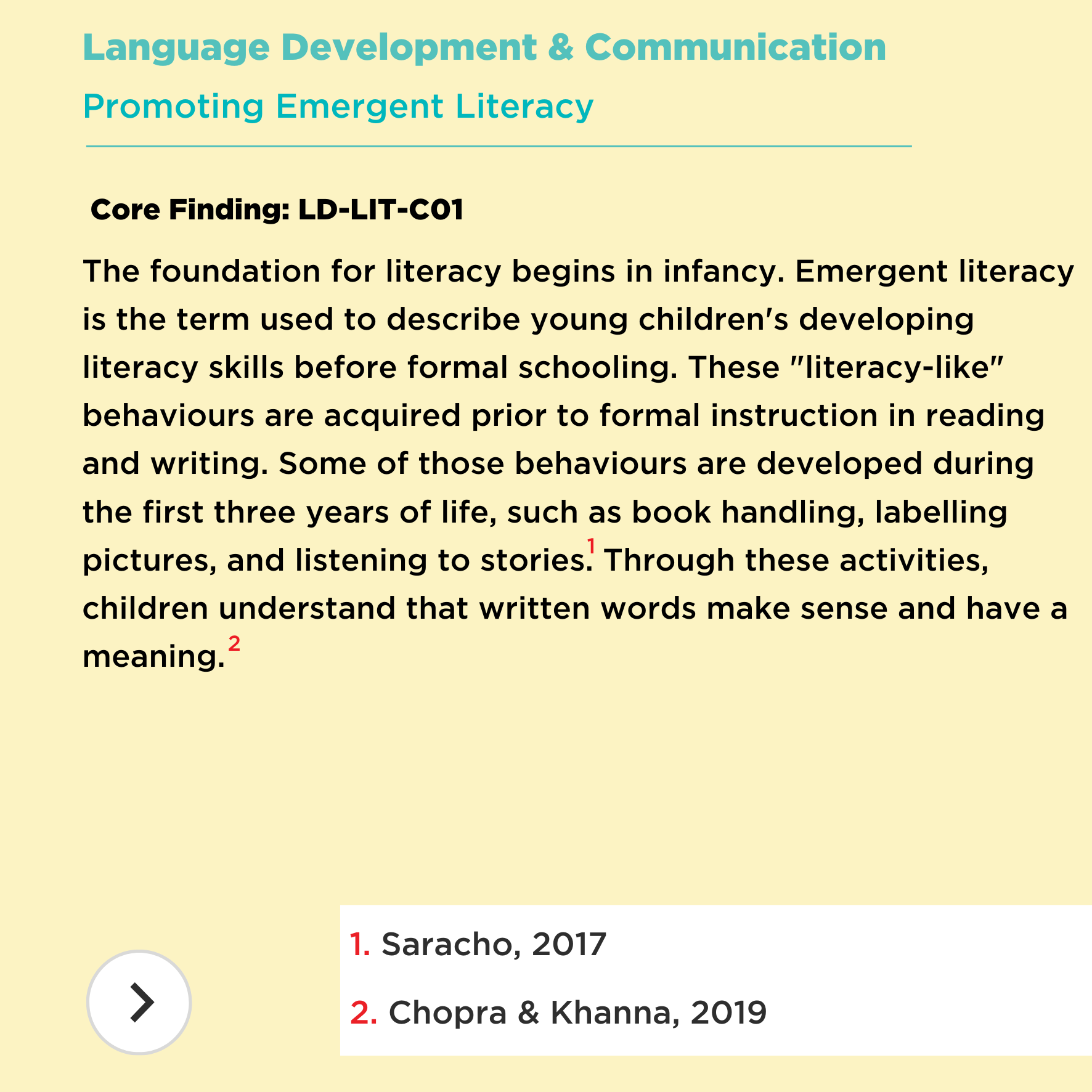
Literacy development is a vital part of your child’s overall development – the foundation for doing well at school, getting along with others, problem-solving, decision making and becoming independent.
Building literacy and language skills helps children be ready for formal schooling by instilling a love for reading and readiness for learning.
This is important for their success in school because they will need to move from learning to read, to reading to learn. At that point, if children struggle with reading, it impacts their ability to learn.
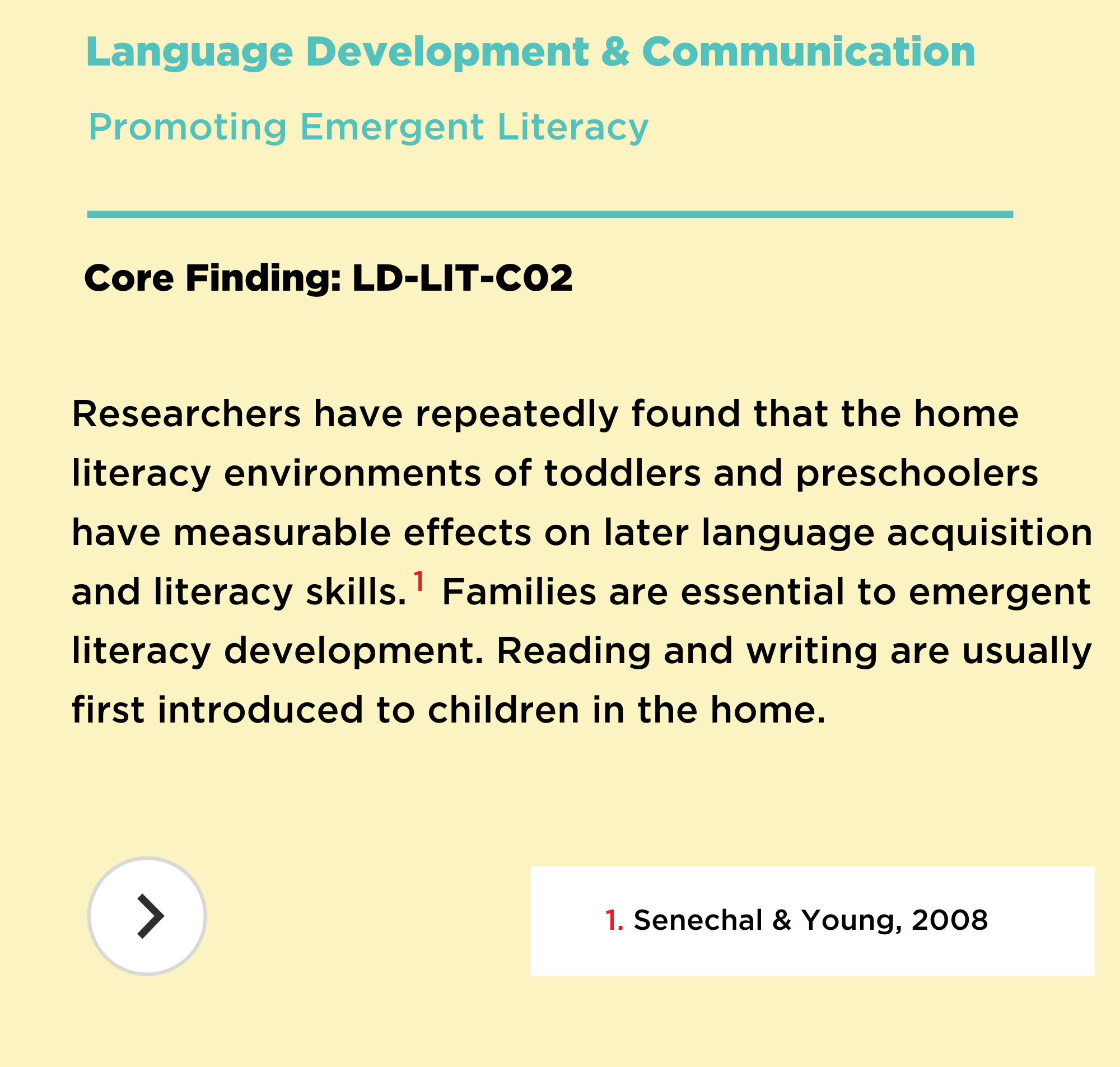
PARENTS ARE THE FIRST TEACHERS
Children who enter school with early literacy skills have an advantage that lasts throughout their schooling years.
A study by the Annie E. Casey Foundation showed that children with poor reading skills are more likely to repeat a grade, which too often sets the stage for a pattern of failure in school.
Children not reading proficiently at Grade 3 (8-9 years old) were four times more likely to drop out of high school (14-18 years old) later on.
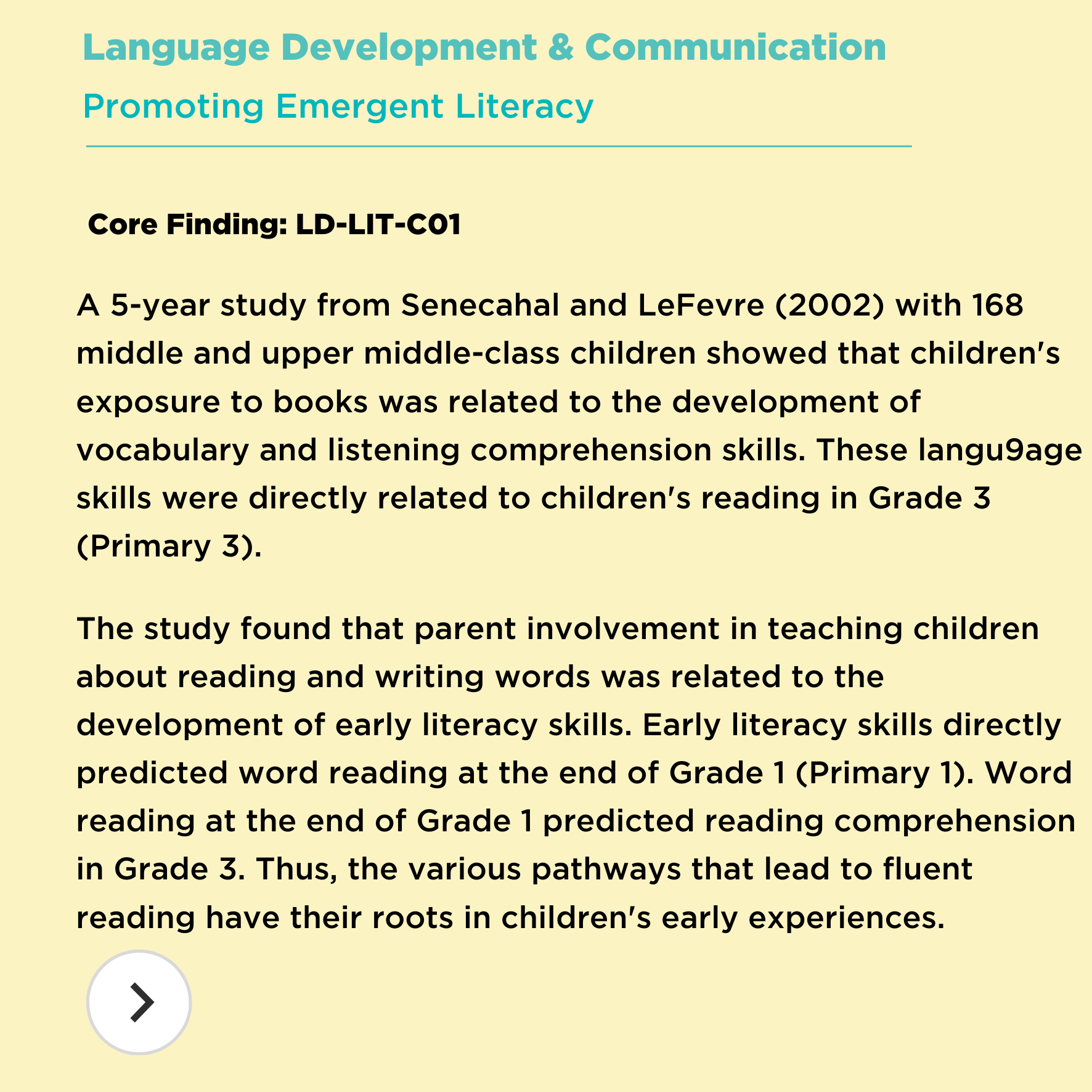
You are your children’s first teachers and play a crucial role in building their emerging literacy knowledge.
Evidence supporting the benefits of parents being involved in their children’s education and literacy development is overwhelming.
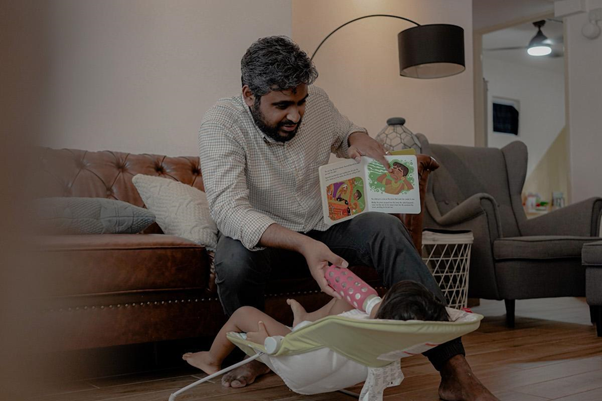
Children need to listen to language spoken by parents and caregivers because language development is a two-way process.
Interacting using language with the child, such as using stories and pictures as opportunities to ask questions and explore ideas, is a key method to promote language development.
Children whose parents read with them are more likely to have stronger language abilities than those whose parents do not.
Parents who introduce their babies to books give them a head start in school and an advantage over their peers throughout primary school.
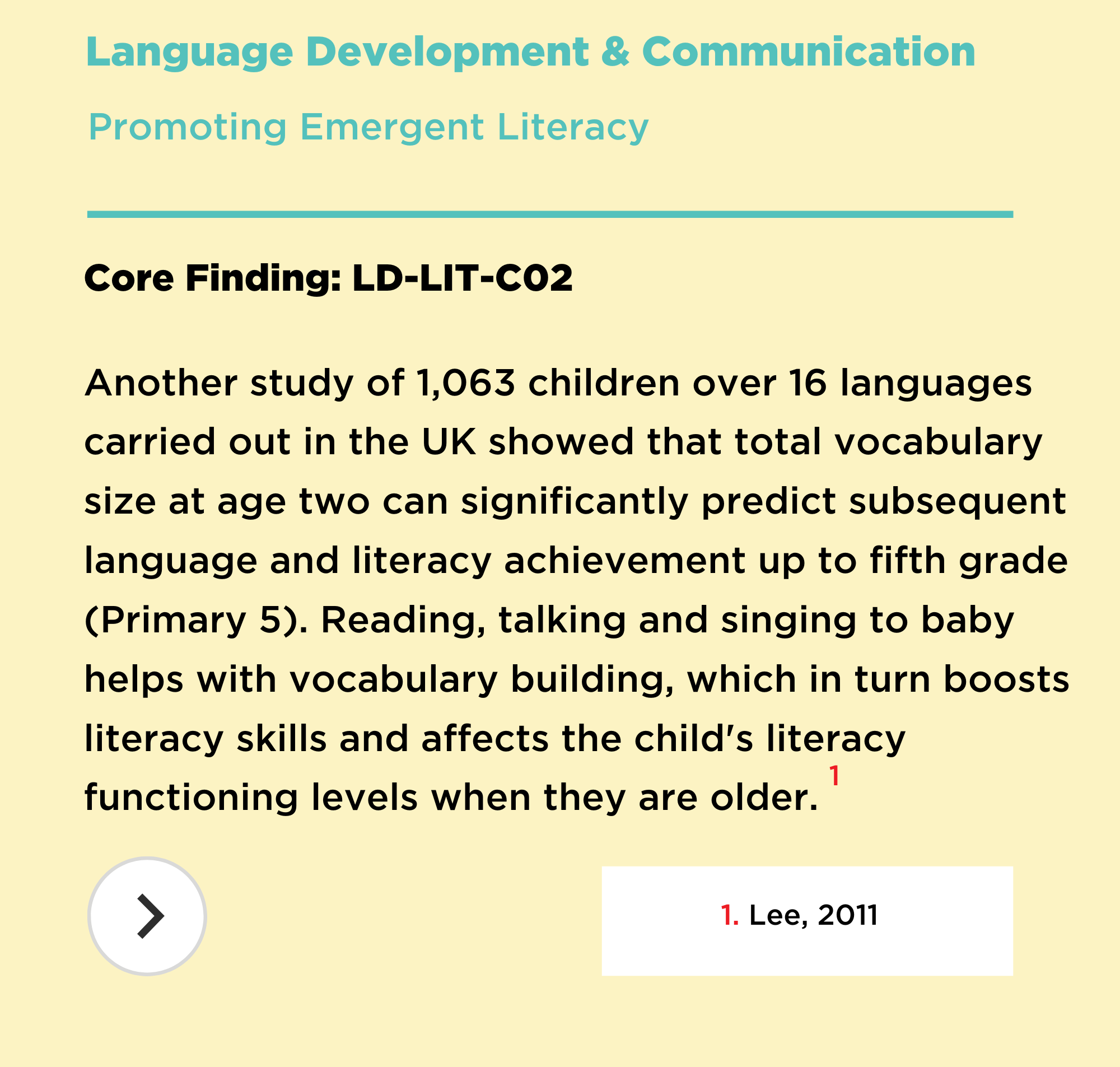
Research from a British study (Duff et al,2015) showed that if parents started building their child’s vocabulary from birth, it positively impacted their language abilities when they attended school.
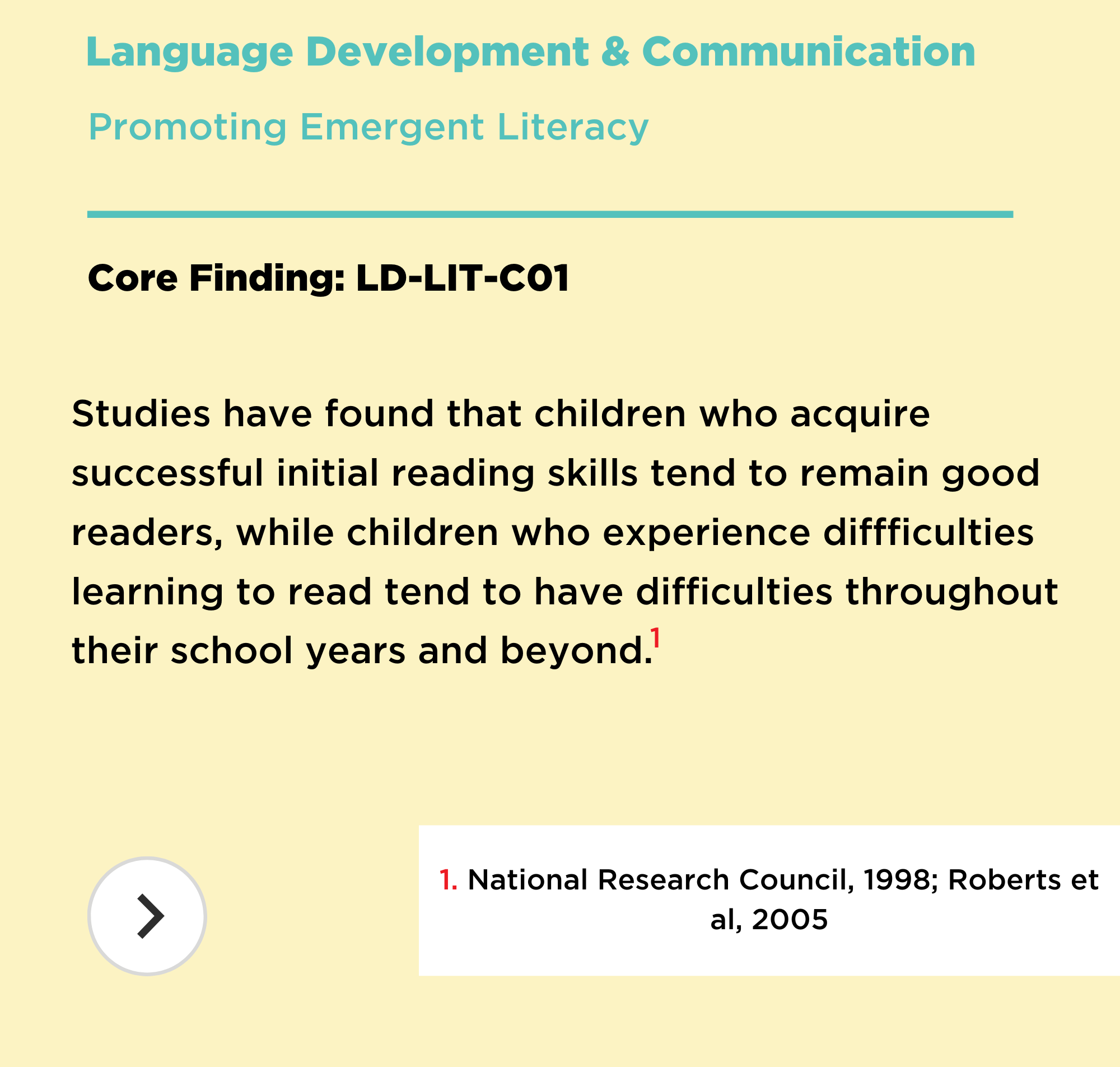
So, parents, take a keen interest in your children’s language development by providing a stimulating literacy environment from as young as possible. You'll see that they’ll be able to speak, write and read better as they grow up – all thanks to you!